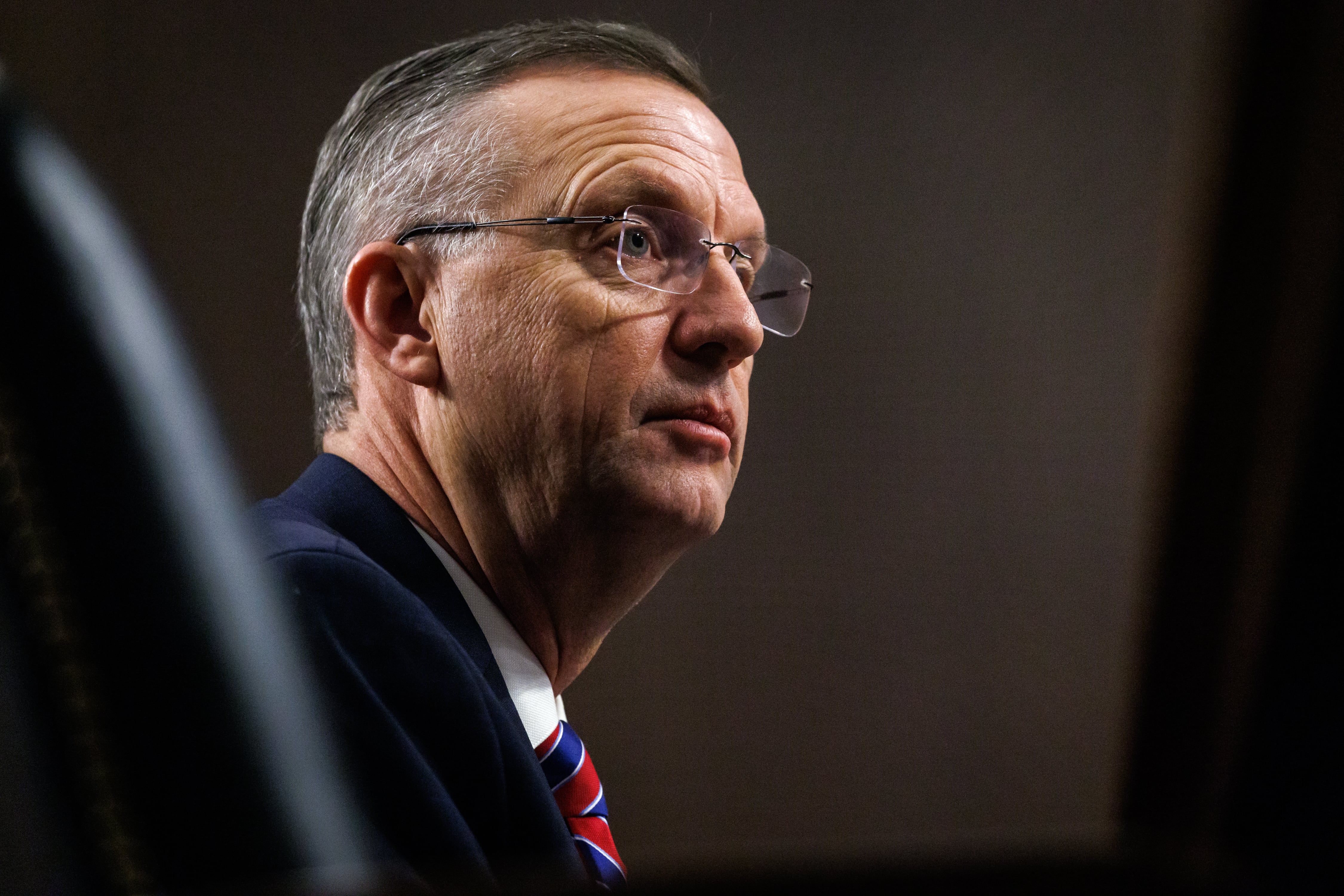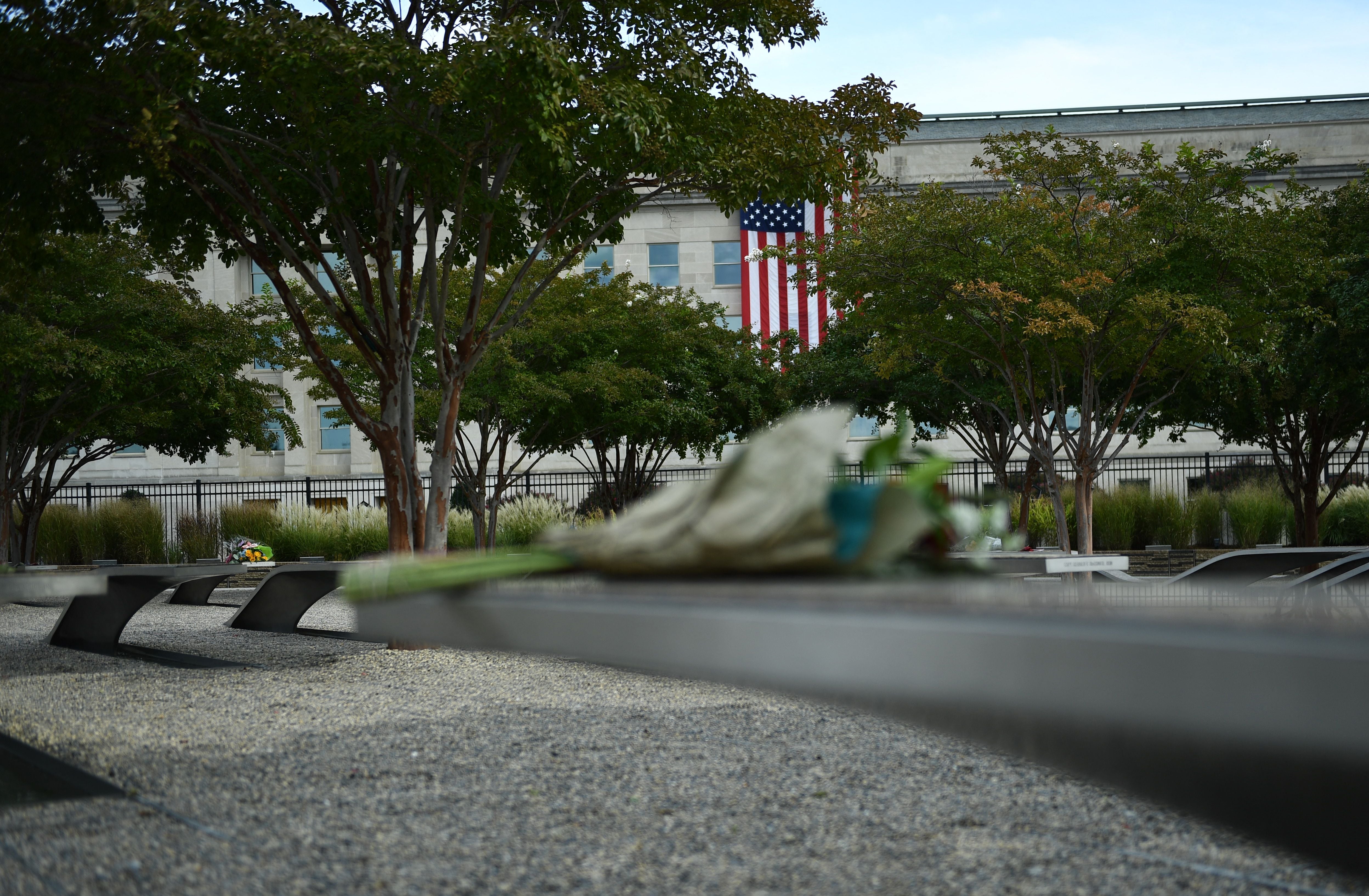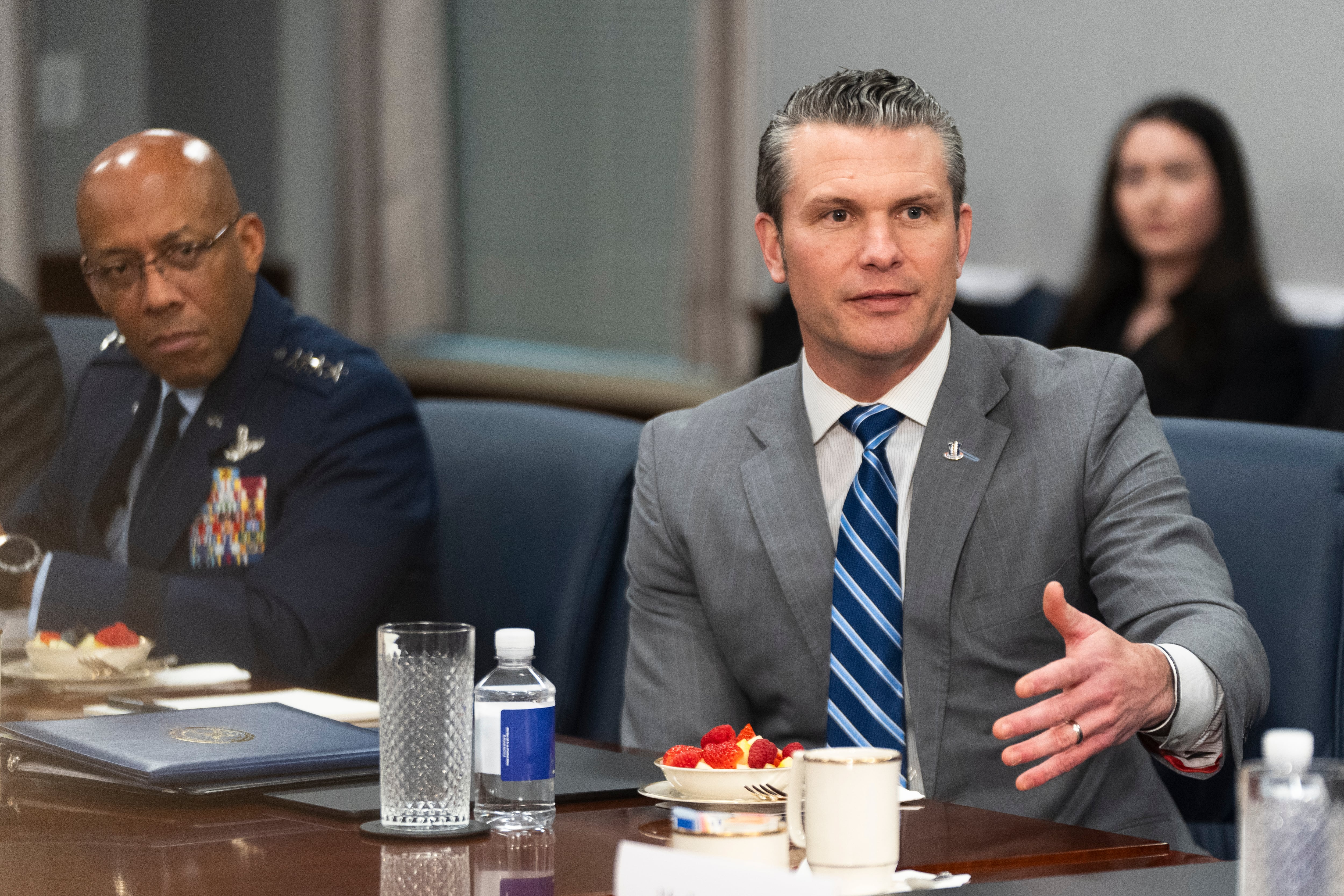New Defense Health Agency director Vice Adm. Raquel Bono has a lot on her plate this year: the pending award of two multibillion-dollar contracts for Tricare; the rollout of a nearly $9 billion electronic health record system; and a possible Tricare reorganization of Tricare.
But despite this convergence of what amounts to the biggest changes to military health care since Tricare was created, Bono says she won't lose sight of the system's most important element: the patient.
"We need to find a way to design our health care system around our patients, rather than ask our patients to design their lives around our system," Bono said during a recent interview at the Defense Health Headquarters in Falls Church, Virginia.
Bono took charge of DHA last November, coming from the National Capital Region Medical Directorate, where she led the organization and served as chief of the Navy Medical Corps.
Her focus when she took the director's job has been to improve DHA's support of the Army, Navy and Air Force medical commands and combatant commanders, while never taking her eye off Tricare.
"I really wanted to create value and provide products to the services so they are more nimble in their delivery of health care to beneficiaries," Bono said.
The emphasis on "product" has begun, with the introduction of a new electronic health records system, expected to be introduced in December at eight hospitals and associated clinics in the Northwest.
Bono said the new system, called MHS Genesis, will serve doctors and patients better than the outdated, cumbersome health records program.
DoD officials say MHS Genesis will let military providers and patients share records with Veterans Affairs, private physicians and any military physician worldwide, whether they are in a hospital, on a submarine or at forward operating base.
The system also is expected to give patients better access to their medical records through the Defense Department's Blue Button portal, by automatically uploading records to the portal. The present system requires a provider to manually upload records and test results.
"People are going to be able to navigate things and find it familiar," Bono said. "Most of what's going on should be invisible to the patient. It should streamline their experience."
More visible to Tricare beneficiaries will be the award, likely this month, of two contracts to manage Tricare for the next five years and the consolidation of three Tricare regions into two — East and West.
At stake are a health program that provides treatment for 9.4 million beneficiaries and contracts worth billions, given the current Tricare contracts were worth more than $53 billion.
Bono said the two-Tricare system promises to save the Pentagon money but that it also should ease any roadblocks beneficiaries experience when they move between regions.
"Sometimes, going to the different regions, while we try to make it as seamless as possible, each contractor does things a little differently. Migrating to two will help us standardize a little better," Bono said.
Depending what Congress decides in the fiscal 2017 defense policy bill regarding Tricare, the system is likely to see more changes this year, including rolling most Tricare health care plans into two main programs, called Tricare Prime and Tricare Preferred.
Tricare Prime would remain a health maintenance organization-style program, while Tricare Preferred would place more emphasis on using network physicians, more of a preferred-provider option than the current Tricare Extra and Standard programs.
Bono said the DoD proposed the new Tricare structure to simplify the options.
"When we compare ourselves to other health care systems out there, we are complex. Part of the effort is to simplify ourselves," she said.
DoD has 55 hospitals and more than 350 clinics worldwide, serving active-duty personnel, military families, retirees and their families.
Bono said she believes the changes that already have occurred in the system, to include the creation of Defense Health Agency to oversee health support services, along with efforts to expand access to care, are improving the system.
According to the Pentagon, Tricare has increased the number of network providers in the past five years by 19 percent, while the number of primary care appointments has increased by 23 percent within the past year alone.
Access to care and patient satisfaction is an ongoing priority for the system, Bono said.
"We have increased the number of primary care appointments, but we still want to be more responsive. We need to listen to patients," she said.
This year, DHA will introduce a new outpatient survey system that will be the same for all military treatment facilities across services. It also plans to improve outreach to patients through social media, blogs and other forms of electronic correspondence, and Bono said she wants anyone with something to say about the military health system to tell her, using the email DHAdirector@mail.mil.
"I am really very interested in what our patients are saying … I want them to use that email," Bono said.
Acknowledging that the system changes will be significant in the coming year, the admiral said she intends to make the transformation as transparent and smooth as possible to ensure patient satisfaction.
"What we would like to be able to do is be more responsive for what our patients are asking for," Bono said.
Patricia Kime covers military and veterans health care and medicine for Military Times. She can be reached at pkime@militarytimes.com.
Patricia Kime is a senior writer covering military and veterans health care, medicine and personnel issues.





